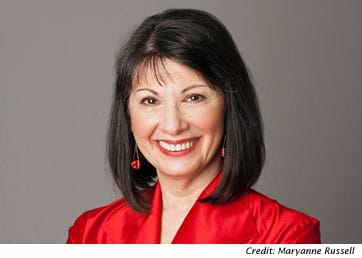
 (WOMENSENEWS)–Why do women resist the power they deserve?
(WOMENSENEWS)–Why do women resist the power they deserve?
I began to discuss this with other women ranging in age from 20 to 80. I soon learned I wasn’t unique. I wanted to explore it further, and Hillary Clinton’s hat in the ring as the first viable woman candidate for president was the perfect catalyst.
My systematic research into women’s conflicted relationship with power began during the 2008 election season, when I wrote an article for Elle magazine about why women do–or as I came to find out, more often don’t–run for office.
What I found stopped me short: It’s no longer external, structural barriers, though some do still exist, but internal ones that hold women back from fully embracing their political power. And I realized there are far more similarities than differences in how this dynamic plays itself out in the seemingly divergent realms of work, politics and personal relationships.
I wanted to learn more. I wanted to understand what internalized values, assumptions and beliefs about ourselves we as women haul around, like worthless cargo, hindering the full attainment of our potential as leaders and doers–what intricate personal and cultural constructs of power, the silent sinews that bind not only our political intentions, but our work lives and even our love lives.
The Power Paradox
Paradoxically, despite my cluelessness about my own power, I’ve spent most of my adult life working for social justice and power for others, most notably women who don’t have access to reproductive choices and health care.
Not, as Jerry Seinfeld would say, that there’s anything wrong with that. In fact, I feel blessed to have been able to make my life’s passion for social justice into my life’s work.
Nor is my path so different from gendered behavior regarded (and rewarded) as laudable–being nice, putting the needs of others first, self-sacrificing, not caring about such "male" prerogatives as earning a high income.
Which is the point. Fighting for others seemed worthy. Fighting for myself, or something I wanted, did not. Defining my life from a place of my own intention was not in my mental repertoire. And many younger women tell me they experience similar problems today even as they seek role models and mentors to teach them differently.
Yet both effective leadership and acts that create fundamental social change are rooted in the language of power. If women are ever to complete our staccato journey to equality, we must join the discourse and become deliberately fluent in power’s meanings and nuances.
While the men around us operate as though they own the world–because, for the most part, they do–we have to work consciously to assume that place of intentional power and agency. Women’s inner struggles parallel the pushme-pullyou history of our advances, and the intricate interplay between the social structures that can restrain or unleash one’s power to approach life with intention.
Redefining Relationships with Power
It’s this relationship with power–almost a spiritual factor, rarely acknowledged by the metrics or even the philosophers, which I’ve witnessed in myself and countless other women–that fascinated me and propelled me to undertake this book. For until we understand and redefine our relationship with power, we will stay stuck in our half-finished revolution. And I think that matters for two reasons.
First, we will remain able to excuse and justify our lack of progress by pointing outward rather than owning our part of the responsibility to take the harder road of pushing forward courageously.
Second, until we can stand confidently in our own power, we won’t be able to lead ourselves or others with intention. If we allow this to happen, if we miss this amazing moment, both women and men will remain constrained within lives of limited possibilities, lives that keep us from achieving our full human potential.
The Right Honorable Kim Campbell, former prime minister of Canada (and the first female head of that nation’s government), put it this way: "Look, power exists. Somebody is going to have it. If you would exercise it ethically, why not you? I love power. I’m power-hungry because when I have power I can make things happen, can serve my community, can influence decisions, I can accomplish things."
Why not you? How many women do you know who can say straight out that they are power hungry? And yet we should be hungry to use our power–for our own gratification, as well as the benefit of the world.
From the book "No Excuses: 9 Ways Women Can Change How We Think about Power" by Gloria Feldt. Excerpted by arrangement with Seal Press, a member of the Perseus Books Group. Copyright copyright 2010.
Would you like to Comment but not sure how? Visit our help page at https://womensenews.org/help-making-comments-womens-enews-stories.
Would you like to Send Along a Link of This Story?
https://womensenews.org/story/leadership/101008/womens-big-power-struggle-now-lurks-within
Gloria Feldt is an activist and author. Her previous books include the New York Times bestseller "Send Yourself Roses," co-authored with actress Kathleen Turner, "Behind Every Choice Is a Story" and "The War on Choice." She served as president and CEO of Planned Parenthood Federation of America, the largest reproductive health and advocacy organization in the U.S., from 1996-2005.
For more information:
Gloria Feldt:
http://www.gloriafeldt.com



